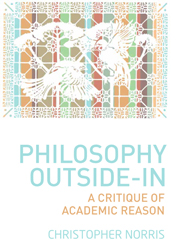Book contents
- Frontmatter
- Contents
- Dedication
- Introduction
- 1 How Not to Defeat Scepticism: Why Anti-realism Won't Do the Trick
- 2 Great Philosophy: Discovery, Invention and the Uses of Error
- 3 Under Which King, Bezonian? Experimental Philosophy versus Thought Experiment
- 4 Outside the Box: On the ‘Extended Mind’ Hypothesis
- 5 Inaesthetics and Transitory Ontology: The Case of Political Song
- 6 Speculative Realism: An Interim Report
- 7 Provoking Philosophy: Shakespeare, Johnson, Wittgenstein, Derrida
- Index
3 - Under Which King, Bezonian? Experimental Philosophy versus Thought Experiment
Published online by Cambridge University Press: 05 March 2014
- Frontmatter
- Contents
- Dedication
- Introduction
- 1 How Not to Defeat Scepticism: Why Anti-realism Won't Do the Trick
- 2 Great Philosophy: Discovery, Invention and the Uses of Error
- 3 Under Which King, Bezonian? Experimental Philosophy versus Thought Experiment
- 4 Outside the Box: On the ‘Extended Mind’ Hypothesis
- 5 Inaesthetics and Transitory Ontology: The Case of Political Song
- 6 Speculative Realism: An Interim Report
- 7 Provoking Philosophy: Shakespeare, Johnson, Wittgenstein, Derrida
- Index
Summary
I
It is no coincidence that the current upsurge of interest in ‘experimental philosophy’ has gone along with a renewed bout of argument concerning the usefulness (or otherwise) of philosophical thought experiments. ‘Gone along with’ is perhaps not the best phrase to use in this context since advocates of the two approaches not only form separate academic camps but can be seen to have sharply opposed views of what philosophy properly is and does. Experimentalists in Camp One think that the best thing philosophers can do is stop laying claim to some order of knowledge or insight denied to your ordinary, average, philosophically untrained human being and instead start asking around among a wide range of respondents both inside and (more importantly) outside their own specialist community. ‘Experiment’ in this sense involves a continued address to the traditional problems of philosophy – problems of metaphysics, epistemology, ethics, aesthetics, political theory and so forth – but pitched in a very different key since it adopts (what it takes to be) the path of empirical enquiry flagged by the social sciences and consults the evidence of popular belief rather than the upshot of ‘expert’ cogitation. Those in Camp Two see nothing wrong with the way that philosophers have most often set about their task, that is, by conducting thought experiments – ‘armchair philosophising’, as sceptics have dubbed it – designed to establish the truth of certain propositions or, by logical devices like reductio ad absurdum, the truth of some through the manifest falsity of their contrary.
- Type
- Chapter
- Information
- Philosophy Outside-InA Critique of Academic Reason, pp. 95 - 123Publisher: Edinburgh University PressPrint publication year: 2013

